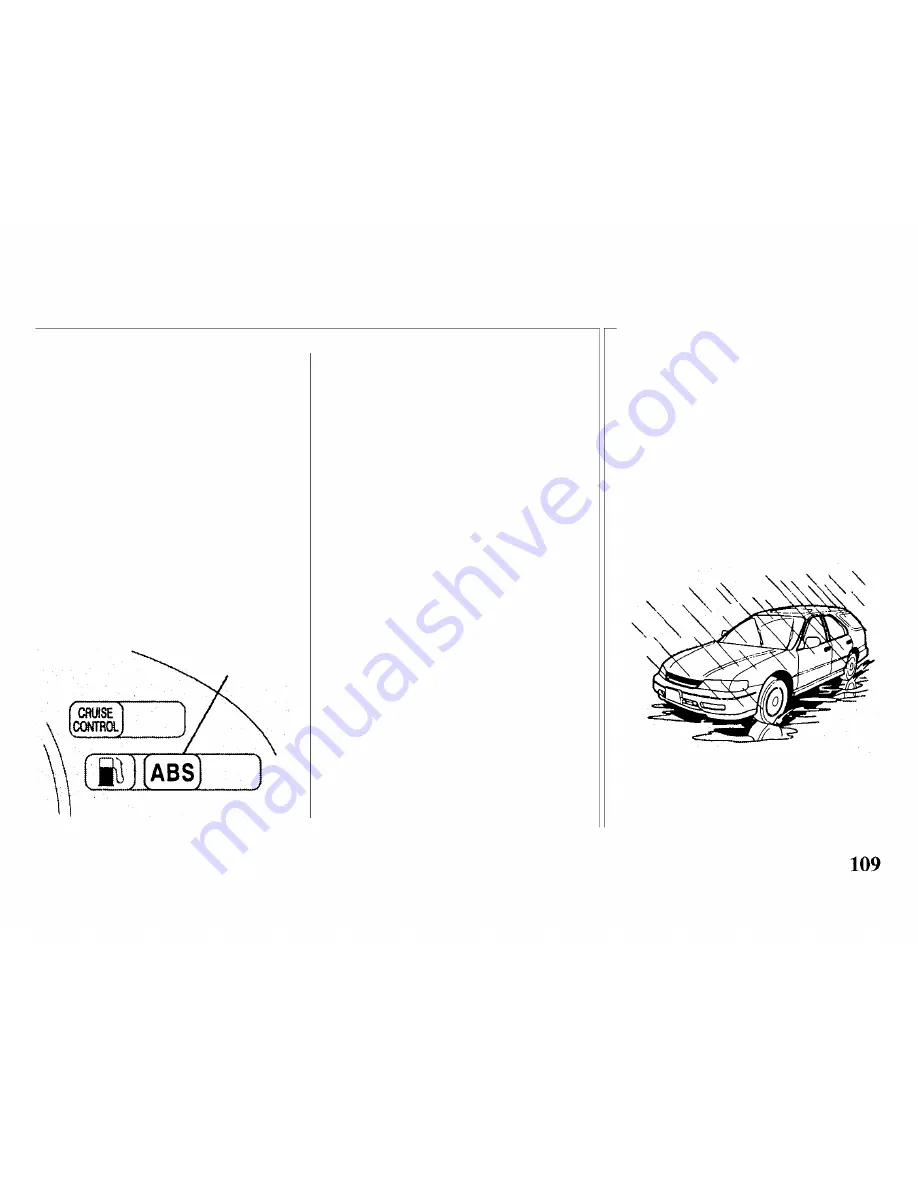
A vehicle with ABS may require
a longer distance to stop
on
loose or uneven surfaces, such as
gravel or snow, than a vehicle
without anti-lock. Slow down and
allow a greater distance between
vehicles under those conditions.
ABS Indicator
The ABS is self-checking. You
may feel a slight movement of the
brake pedal just after you start the
engine. This is the ABS performing
a check. It also checks itself
whenever you use the brakes.
If anything goes wrong, the ABS
indicator on the instrument panel
comes on (see page
31
). This
means the anti-lock function of
the braking system has shut down.
The brakes still work like a
conventional system, providing
normal stopping ability. You
should have the dealer inspect
your vehicle as soon as possible if
this light stays on after you start
the engine, or comes on while
driving.
Rain, fog, and snow conditions
require a different driving
technique because of reduced
traction and visibility. Keep your
car well-maintained and exercise
greater caution when you need to
drive in bad weather. The cruise
control should not be used in
these conditions.
continued
Driving
Driving in Bad Weather
ABS INDICATOR
















































